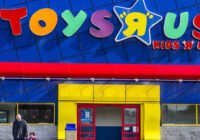Forbes has followed Jeff Bezos on his pilgrimage to India this week. On January 15, the journal reported on Amazon’s declared ambition to help boost the Indian economy. The magazine reports: “Amazon founder and chief executive Jeff Bezos said on Wednesday from New Delhi that his e-commerce behemoth will invest $1 billion to bring small and medium businesses in India online. He also pledged that his company will export $10 billion worth of ‘Made In India’ goods by 2025.”
At that point, Forbes assumed that Bezos would seek a meeting with Indian Prime Minister Narendra Modi to seal the deal.
Here is today’s 3D definition:
Pledge:
A legal and risk-free bribe in the form of promise, with no direct cost involved, of future action that enables powerful, rich people or institutions to control nations, regions or populations that are less rich and powerful
Contextual Note
The population of India finds itself in a familiar situation as a privately-owned overseas benefactor generously proposes to take over its economy and eventually — with the help of the company’s home nation — its political organization. The British ran India (and their other colonies) for three centuries by pledging to stimulate the local economy while personally rewarding cooperative local leaders and offering a range of services to reinforce their authority.
The Indian people appear to be aware of the historical pattern and have massively expressed their defiance. Bezos appeared to be counting on the support of Modi, whom he hoped to meet on his trip to India. The prime minister is clearly the one person with the power to make his ambitious project work. Modi might even have an interest in making it work, since, without outside help, he may find it challenging to realize his own electoral pledge to his people to nearly double the GDP of India in his second term.
Forbes comments that “the goodwill from Bezos toward India is necessary,” citing the atmosphere of defiance in India and possible revolt against everything Amazon represents. Among other evidence of popular resistance, which includes restrictive laws on foreign commerce, Forbes mentions the fact that “a trade organization representing millions of small and medium-sized business owners organized protests in 300 cities across the country against Amazon to coincide with the billionaire’s visit.”
The Forbes article was published on Wednesday and sounded upbeat. Thursday offered a surprise, however, as the Indian journal Swarajya reported: “In what appears to be a sensational turn of events, Prime Minister Narendra Modi seems to have given a cold shoulder to the world’s richest man.” Bezos’ projected meeting with Modi has been canceled.
It may sound as if the popular will is having its effect. But in a further twist that tells us a lot about Modi’s often hyperreal politics, we learn that “this cold shouldering has little to do with the ongoing probe on Amazon by the Competition Commission of India and more to do with the critical stand of the Washington Post – owned by Bezos – against the Indian government.” Swarajya noted that The Post’s “editorial stand has been extremely critical” of the Bharatiya Janata Party (BJP) government.
Others have claimed that the “Indian government may have canceled the meeting with Bezos to calm fears among Indian traders,” which, if true, would mean that Modi is sensitive to pressure from the people, at least until that pressure dies down. The Indian media platform Inc42 suggests that one reason is an immediate electoral concern: “With Delhi elections coming up next week, the [BJP] ‘doesn’t want to give political [ammunition] to the opposition.’”
According to India’s Economic Times, some officials who understand how pledges work believe there is a dual risk with the Amazon operation: The investment of even $1 billion may fail, with no serious damage to Amazon. If it doesn’t fail, it will be thanks to Amazon’s “predatory pricing or … unfair trade practices.” These are practices that could upset the entire retail sector of a nation with a population four times that of the US. Union Commerce and Industry Minister Piyush Goyal provided this analysis: “Amazon was not doing a favour to the country by the investments and questioned how the online retailing major could incur such ‘big’ losses but for its predatory pricing.”
Historical Note
Founded at the very beginning of the 17th century, the East India Company created the classic model for asymmetric economic relations between the East and West. The company was incorporated by royal charter on December 31, 1600. Encyclopaedia Britannica summarizes its activity over the next three centuries: “Starting as a monopolistic trading body, the company became involved in politics and acted as an agent of British imperialism in India from the early 18th century to the mid-19th century.”
Jeff Bezos may see himself as a latter-day Robert Clive. The Forbes article quotes him on his vision of India and why he feels it’s essential for Amazon to be part of the country’s rise to dominance. “I predict that the 21st century is going to be the Indian century,” he said. “In this 21st century, the most important alliance is going to be the alliance between India and the United States—the world’s oldest democracy and the world’s largest democracy.” Some Indians suspect a more general reason: that Amazon wants to have a cut of everything that’s bought and sold in the subcontinent.
Bezos envisions a two-nation team of democracies that are currently led by two of the least democratic heads of state in modern history: Donald Trump and Narendra Modi. As a geopolitical thinker rather than a simple businessman, Bezos may be right in thinking that an alliance with India would be the only viable strategy for shoring up the declining US empire and responding to the rise of China. But India knows what alliances with powerful English-speaking nations amount to.
Furthermore, Modi may have some specific reasons for not seeking an alliance with Trump. A new book by two Washington Post journalists recounts a conversation between Modi and Trump, in which the US president blurted out, “It’s not like you’ve got China on your border.” Modi was so disturbed by Trump’s ignorance that he didn’t bother to parry this with: Why do you talk so much about a wall? It’s not like you’ve got Mexico on your border. A Trump aide surmised that Modi was thinking: “This is not a serious man. I cannot count on this man as a partner.”
In a very real sense, Bezos is both better informed than Trump and more powerful than Modi in global influence and sheer clout. Modi has certainly understood that. But it may take more than $1 billion to convince him to let the fox into the henhouse. Even the appeal to Modi’s mercantilism by evoking a figure of $10 billion-worth of exported Indian goods shouldn’t convince a leader who’s now forced to think in the trillions after pledging to double the Indian GDP. And, of course, most Indians remember what happened when the British not only pledged but actively opened the world market to Indian goods.
Swarajya concluded its article with this enigmatic observation: “Modi 2.0 is not the same as Modi 1.0 and the world must come to terms with it.” India itself has been waking up to this new reality as Modi 2.0 seems intent on pushing his communitarian agenda as far as his reach will take him. This has led to bigger problems than a deal with Amazon might solve.
*[In the age of Oscar Wilde and Mark Twain, another American wit, the journalist Ambrose Bierce, produced a series of satirical definitions of commonly used terms, throwing light on their hidden meanings in real discourse. Bierce eventually collected and published them as a book, The Devil’s Dictionary, in 1911. We have shamelessly appropriated his title in the interest of continuing his wholesome pedagogical effort to enlighten generations of readers of the news.]
The views expressed in this article are the author’s own and do not necessarily reflect Fair Observer’s editorial policy.
Support Fair Observer
We rely on your support for our independence, diversity and quality.
For more than 10 years, Fair Observer has been free, fair and independent. No billionaire owns us, no advertisers control us. We are a reader-supported nonprofit. Unlike many other publications, we keep our content free for readers regardless of where they live or whether they can afford to pay. We have no paywalls and no ads.
In the post-truth era of fake news, echo chambers and filter bubbles, we publish a plurality of perspectives from around the world. Anyone can publish with us, but everyone goes through a rigorous editorial process. So, you get fact-checked, well-reasoned content instead of noise.
We publish 2,500+ voices from 90+ countries. We also conduct education and training programs
on subjects ranging from digital media and journalism to writing and critical thinking. This
doesn’t come cheap. Servers, editors, trainers and web developers cost
money.
Please consider supporting us on a regular basis as a recurring donor or a
sustaining member.
Will you support FO’s journalism?
We rely on your support for our independence, diversity and quality.






